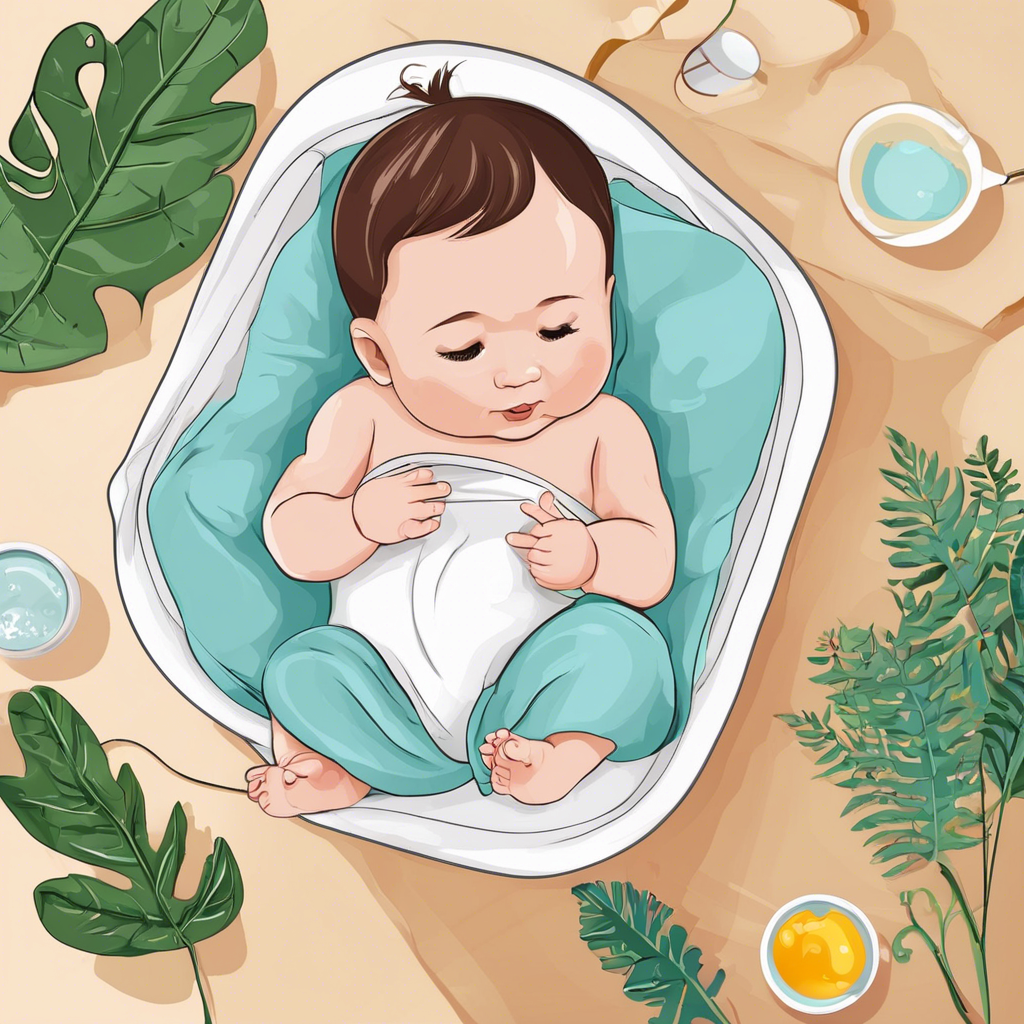Caring for a baby comes with endless joys, but it also involves handling common ailments that can arise unexpectedly. While some conditions require a doctor’s intervention, many minor issues can be managed safely at home with simple remedies. Knowing how to handle these common ailments can provide relief to both the baby and parents, ensuring a smoother and more comfortable recovery.
One of the most frequent issues parents encounter is a fever. A mild fever is usually a sign that the baby’s immune system is fighting off an infection. If the temperature is below 100.4°F (38°C), there’s no immediate cause for concern. Dressing the baby in light clothing and offering plenty of fluids, such as breast milk or formula, helps keep them hydrated. A lukewarm sponge bath can also provide comfort. However, if the fever is high or persists for more than 24 hours in infants under three months, seeking medical attention is crucial.
Colic is another distressing condition that affects many newborns. Babies with colic often cry for extended periods, usually in the evening, despite being well-fed and having a clean diaper. A gentle tummy massage, bicycle leg movements, and holding the baby in an upright position after feeding can help ease discomfort. White noise, such as a fan or a soft lullaby, may also have a calming effect. Some parents find that giving their baby a warm bath or using anti-colic drops, recommended by a pediatrician, provides relief.
Diaper rash is a common skin irritation caused by prolonged exposure to moisture, friction, or sensitivity to diaper materials. Keeping the baby’s skin clean and dry is the best way to prevent and treat this issue. Changing diapers frequently and using fragrance-free wipes or warm water with a soft cloth can reduce irritation. Applying a thick layer of zinc oxide or petroleum-based diaper cream creates a barrier that helps heal the skin. Allowing the baby to spend some diaper-free time each day can also speed up recovery.
Many babies experience nasal congestion, especially during cold and flu season. Since newborns breathe primarily through their noses, congestion can make feeding and sleeping difficult. Using a saline nasal spray followed by a gentle suction with a bulb syringe can help clear mucus. Running a cool-mist humidifier in the baby’s room adds moisture to the air, easing breathing difficulties. Keeping the baby in an upright position during feeds and ensuring they are well-hydrated also promotes nasal relief.
Gas pain can make babies fussy and uncomfortable. This is common due to their immature digestive systems. Burping the baby after every feed and feeding them in an upright position can reduce the risk of trapped gas. Tummy time, gentle abdominal massages, and leg exercises that mimic cycling can encourage gas to pass. Some parents find gripe water or simethicone drops, when approved by a pediatrician, helpful in relieving gas discomfort.
Constipation can also be a concern, particularly for formula-fed babies. If a baby has fewer bowel movements than usual and strains while passing stools, some home remedies may help. Offering a small amount of prune or pear juice, if the baby is older than four months, can soften stools. Massaging the baby’s belly in a circular motion and moving their legs in a bicycling motion can also stimulate bowel movements. If constipation persists for more than a few days, consulting a doctor is advisable.
Teething is another common challenge that can make babies irritable and restless. Babies may drool excessively, chew on objects, and show signs of gum discomfort. Offering a clean, cold teething ring or a chilled washcloth to chew on can provide relief. Massaging the baby’s gums gently with a clean finger may also help. If discomfort is severe, pediatricians may recommend acetaminophen or ibuprofen in appropriate doses. However, teething gels containing benzocaine should be avoided, as they can be harmful to infants.
Ear infections are another frequent ailment that can cause fussiness, especially after a cold. Babies may tug at their ears, have trouble sleeping, or develop a fever. Warm compresses applied to the affected ear can provide some relief. Keeping the baby upright during feeding and avoiding bottle-feeding while lying down can help prevent infections. If symptoms persist, a pediatrician may prescribe antibiotics if a bacterial infection is present.
Skin rashes and baby acne are common but usually harmless. Newborns often develop small red bumps or whiteheads on their faces due to hormonal changes. Washing the baby’s face gently with warm water and avoiding oily lotions can help clear up the skin. If a rash appears suddenly or spreads, it’s best to consult a doctor to rule out allergic reactions or infections.
While most minor ailments can be treated at home, parents should always trust their instincts. If a baby seems unusually lethargic, has difficulty breathing, refuses to eat, or has a high fever, seeking medical advice promptly is essential. Understanding how to manage common baby ailments at home can help parents feel more confident in caring for their little ones while ensuring a safe and comfortable recovery.

